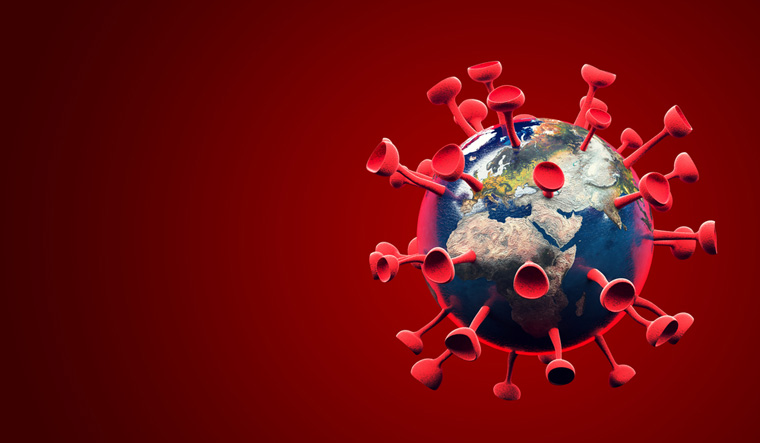While some mutations in the novel coronavirus are directed by the human immune system proteins which degrade it, a new study says the virus is able to bounce back, findings that may help in the design of new vaccines against COVID-19.
According to the researchers, including Alan Rice from the University of Bath in the UK, while all organisms mutate, the process is usually random, often owing to mistakes made when the genetic material is copied.
In the case of the novel coronavirus SARS-CoV-2, the study, published in the journal Molecular Biology and Evolution, noted that the process may not be random, and that humans are mutating it as part of a defence mechanism to degrade the virus.
The scientists assessed over 15,000 virus genomes from all of the sequencing efforts around the world, and identified over 6,000 mutations.
They looked at how much the sequence of four basic molecules that make up the virus' genetic code -- Adenine (A), Cytosine (C), Uracil (U), and Guanine (G) -- was mutating.
The researchers discovered that the virus genome sample data they analysed had a very high rate of mutations generating U residues.
"I have looked at mutational profiles for many organisms and they all show some sort of bias, but I've never seen one as strong and strange as this," said study senior author Laurence Hurst, Director of the Milner Centre for Evolution at the University of Bath.
In particular, the scientists found that mutation very commonly generated UU neighbouring pairs, changing from the original sequence of CU and UC.
They said this is a fingerprint of the mutational profile of a human protein called APOBEC that can mutate viruses.
"It looks like mutation isn't random, but instead we are attacking the virus by mutating it," Hurst said.
By looking at the actual composition of the virus, and by comparing between different sorts of sites within the virus, the researchers found evidence that natural selection, or the 'survival of the fittest' process of evolution, is allowing the virus to fight back against the mutational process.
They said copies of the virus which are able to resist the human immune system's efforts to mutate it in a specific way could be differentially surviving and reproducing better.
From the mutational profile of the virus, the scientists predicted that 65 per cent of the residues should be a U and 40 per cent should be UU pairs, but in practice, they said the U content is much lower, and UU content is just about a quarter of that predicted.
"This could be because the viruses that have too much U in them simply don't survive well enough to reproduce. We estimate that for every 10 mutations that we see, there are another six we never get to see because those mutant viruses are too poor at propagating," Hurst explained.
According to the scientists, one of the reasons for this could be that the U rich versions of the viruses' genes, as the team found, were less stable, and are seen at lower levels.
"Humans also have other proteins that attack sequences that are rich in U residues that might also force destruction of some versions of the virus," the researchers said in a statement to the press.
Based on these findings, the scientists said humans are attacking the virus to mutate it in a manner that degrades the virus, adding that this has implications for some vaccine designs.
The researchers noted that several research groups across the world are currently trying to make synthetic versions of the virus in a manner that enables the virus to be viable, but only just, so called attenuated viruses.
"Knowing what selection favours and disfavours in the virus is really helpful in understanding what an attenuated version should look like," Hurst said.
"We suggest for example that increasing U content, as APOBEC does within our cells, would be a sensible strategy," he added.



